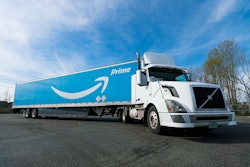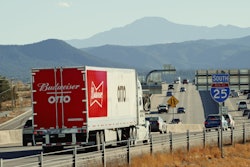Just about anyone who follows the stock market has a favorite company, usually tech-savvy consumer brands like Apple or Tesla because they make cool stuff we can all use.
Mine is Amazon. At about $1,300 (give-or-take) per share, I can afford to own exactly 0.0 shares of the company, but for years I have been amazed by Amazon’s ability to consistently figure out how to make mundane and awful experiences like shopping feel less terrible.
Amazon doesn’t really make anything but they sell everything, and if you hate shopping as much as I do they make it far less painless.
In the last two months, I have purchased sparring gear for my youngest daughter’s taekwondo classes and wood pellets for my barbeque grill from the same place: my couch.
And I’m not alone in loving the simplicity.
Research and advisory firm Forrester forecasts that 17 percent of all U.S. retail sales will be made online by 2022, up about 5 percent from the nearly 13 percent share e-commerce held of retail last year.
With that many transactions daily – some estimates suggest Amazon closes 3 million deals a day – a company that is basically The Mall of America, Walmart and Costco all rolled into one is further entrenching itself in the supply chain.
Amazon’s goal of becoming a logistics and transportation behemoth may be the worst kept secret in trucking.
Amazon has purchased thousands of trailers and leases a small fleet of cargo planes in support of its Prime Air service. Late last year, Amazon jumped into the “Uber for Trucking” space with the debut of Relay, an app designed to make it easier to pick up and drop off at Amazon warehouses by allowing drivers to check-in with QR codes at security gates rather than flashing a badge and paperwork.
Through services like Amazon Flex, a pizza-delivery-meets-Uber-like shipping service, Amazon is already tackling home delivery in select markets.
And last month Amazon finally acknowledged long suspected plans of an Amazon delivery option by making it available in Los Angeles for companies that sell merchandise online through Amazon.
Five years ago, UPS’s Christmas wasn’t very merry when their infrastructure imploded under holiday shipping pressures. In turn, Amazon handed out scores of gift cards and refunded shipping costs to affected customers.
On the surface, it may seem like Amazon is on a quest for retribution but at least for the time being, I think Amazon’s venture into shipping is more about self-preservation.
According to online statistics company Statista, Amazon’s shipping revenue in 2016 was $8.98 billion while its outbound shipping costs were $16.17 billion. In 2015, the online retailer reportedly spent $11.5 billion on shipping expenses, which was more than 45 percent of all of the company’s operating expenses that year.
Amazon’s shipping costs are only expected to climb as more customers turn to the platform for general merchandise like martial arts gloved and barbeque pellets. The one-off shipments of random items are harder for the company to scale and lead to higher shipping costs.
In 2016, Amazon’s annual fulfillment costs grew 31 percent over the year before, Statista notes.
Successful delivery of Amazon’s goods is almost wholly at the mercy of a third-party providers. Walmart doesn’t operate that way and neither does your local pizza parlor.
Shipping with Amazon is a logistics play, speeding up fulfillment for third-party sellers and it’s a step toward making same-day delivery the norm in certain markets.
In the push for instant gratification, Amazon controlling the final-mile space in its largest markets – like Los Angeles – makes more sense than trying to rival the likes of UPS and FedEx for a share of the highway.












